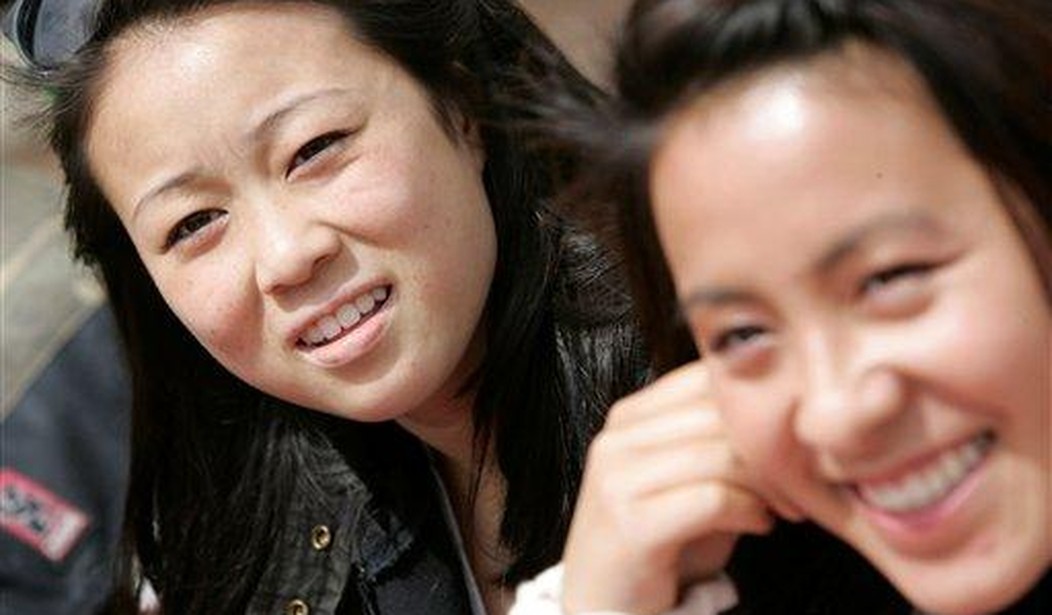OK, maybe it’s not that ominous, but lawsuits filed by Students for Fair Admission against Harvard and the University of North Carolina allege that “the schools use race preferences to reach a specific racial balance on campus and have failed to abide by the strict scrutiny of racial preferences required by the Supreme Court,” according to the Wall Street Journal.
It may not be like the concerted anti-Semitic efforts Harvard employed to reduce the number of Jewish applicants in the early 20th century, but the suit notes that while other minorities are growing in their rates of acceptance at the elite school, Asian enrollment has remained flat:
Over the last eight years Asian students have comprised between 17.6% and 20.7% of students admitted to Harvard. Though the number of Asians applying for admission has increased, the percentage of offers has barely budged. In 1992, 19.1% of Harvard’s admissions offers went to Asian applicants, compared to 25.2% who were admitted to the California Institute of Technology, a school that doesn’t use racial preferences. In 2013 Harvard made 18% of its offers to Asians, while CalTech admitted 42.5% Asian students.Similar admissions percentages at Harvard have held steady for other racial groups with remarkably little variance. In other words, while schools like Harvard say the goal of racial preferences is to achieve a “critical mass” of minority students, the admissions evidence suggests that the school is reserving pre-rationed pie slices for racial groups.
Yascha Mounk wrote in the New York Times that admission numbers for Asians at Harvard have actually been stagnant for nearly two decades–and that Asian applicants must score at least 140 points higher than whites on their SATs:
Recommended
A similar injustice is at work today, against Asian-Americans. To get into the top schools, they need SAT scores that are about 140 points higher than those of their white peers. In 2008, over half of all applicants to Harvard with exceptionally high SAT scores were Asian, yet they made up only 17 percent of the entering class (now 20 percent). Asians are the fastest-growing racial group in America, but their proportion of Harvard undergraduates has been flat for two decades.
These challenges are the result of the Supreme Court refusing rule if affirmative action policies constituted racial discrimination in the college admission process in their 2013 Fisher v. University of Texas decision.
Affirmative action is another complicated–and racially charged–subject–and it appears to be impacting Asian Americans negatively. It adds another layer to the debate.

























Join the conversation as a VIP Member